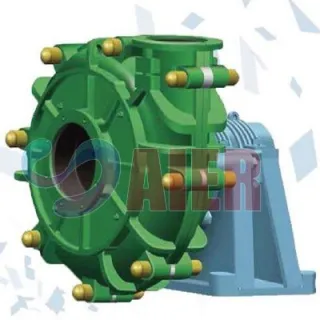ag. . 18, 2024 06:05 Back to list
China Slurry Pump Impeller Design and Manufacturing Solutions for Efficient Material Handling
The Role of Slurry Pump Impellers in Industrial Applications
In various industrial settings, the transportation of slurries—a mixture of solids and liquids—occurs frequently. Slurry pumps are essential components in this process, designed to handle the abrasive and viscous nature of slurry mixtures. Within these pumps, the impeller plays a critical role in determining efficiency, durability, and overall performance. This article will explore the significance of slurry pump impellers, focusing on design, material choice, and application in various industries.
Understanding Slurry Pump Impellers
The impeller is the rotating component of a slurry pump that creates centrifugal force to move the slurry through the pump and into the desired piping system. The effectiveness of this process hinges on the design of the impeller. Generally, slurry pump impellers come in several shapes and sizes, each optimized for different types of slurries and industrial conditions.
A well-designed impeller will enhance the flow characteristics of the slurry, minimize wear, and reduce energy costs. The impeller's geometry—such as the diameter, blade angle, and number of vanes—must be tailored to the specific requirements of the application. For example, a high-efficiency impeller design with a larger diameter may be ideal for low-viscosity slurries, while a robust impeller with a smaller diameter might excel in handling denser and more abrasive mixtures.
Material Selection in Slurry Pump Impellers
The choice of materials for slurry pump impellers is critical, given the harsh conditions they often face
. Common materials include various alloys, rubber compositions, and polyurethanes, each with its own set of advantages and disadvantages.Metal alloys, particularly those with high chromium content, are popular due to their excellent wear resistance and strength. However, they may not perform well with all slurry types. For instance, rubber impellers can provide remarkable resistance to corrosion and are often used in applications where chemical reactions may occur. Nevertheless, rubber may not withstand high-abrasive slurries for extended periods.
china slurry pump impeller

Polyurethane impellers represent a middle ground, offering good wear resistance while maintaining flexibility, making them suitable for a wide range of applications. The selection of material must be carefully considered to ensure longevity and optimal performance in the respective environment.
Applications Across Industries
Slurry pump impellers find applications in various industries, including mining, construction, wastewater management, and food processing. In the mining industry, slurry pumps are crucial for transporting tailings and slurries from mineral separation processes. The durability of the impeller is significant here, as it frequently encounters heavily abrasive materials.
In the construction sector, slurry pumps are used for dewatering and pumping mixtures of water and sediment. The ability of the impeller to handle such mixtures efficiently directly influences project timelines and costs.
Furthermore, the wastewater management industry relies on slurry pumps to maintain the flow of sewage and sludge, where impeller performance is vital for ensuring effective treatment processes. In food processing, where hygiene is critical, rubber or specially coated impellers are often used to prevent contamination while efficiently moving various mixtures.
Conclusion
The importance of slurry pump impellers cannot be understated in industrial applications that involve the transport of slurries. Their design, material selection, and suitability for specific processes are paramount to ensuring operational efficiency and longevity. As industries evolve, ongoing advancements in impeller technology promise to enhance performance, reduce costs, and adapt to the growing diversity in slurry types. Understanding these factors is essential for businesses looking to optimize their slurry handling processes and equipment performance.
-
Wholesale Casting Dredge Pump Part - High Quality China Manufacturers & Suppliers
NewsJul.04,2025
-
High Quality Slurry Pump Seals Reliable China Suppliers & Manufacturers
NewsJun.24,2025
-
High Quality Portable Submersible Slurry Pump Supplier & Manufacturer from China
NewsJun.10,2025
-
Slurry Pump Parts Manufacturer – High Quality Rubber Spare Parts from China
NewsJun.10,2025
-
High Quality 1/3 HP Submersible Sump Pump with Vertical - Reliable Supplier & Factory Price
NewsJun.10,2025
-
High-Efficiency Centrifugal Slurry Pumps India
NewsJun.10,2025
